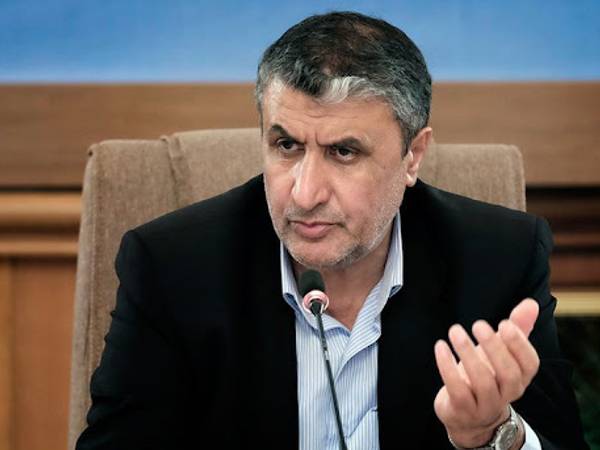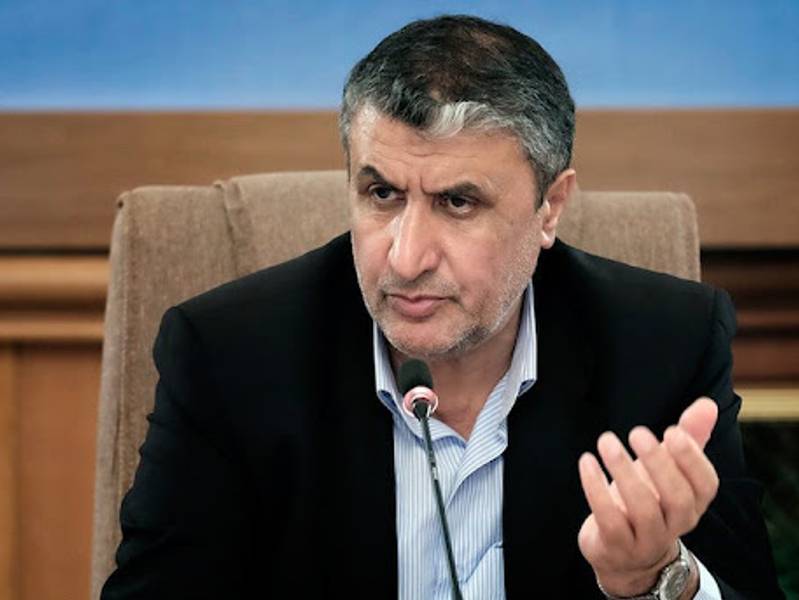The head of Iran’s atomic energy agency has said that stockpiles of 20-percent enriched uranium have reached 120kg, a third more than previous estimates.
As Iran has stopped participation in the Vienna nuclear talks with world powers in June, it is claiming to be fast enriching uranium in what could be an attempt to build more leverage when the talks resume.
Mohammad Eslami, vice president to President Ebrahim Raisi and Iran’s nuclear chief, speaking in a state television program Saturday evening claimed that the signatories of the 2015 nuclear agreement had promised to provide 20-percent enriched uranium for Tehran’s research reactor but failed to do so.
The United States and its European allies have become concerned at Iran’s delay in rejoining the Vienna process to revive the 2015 nuclear deal (JCPOA). They have repeatedly warned Iran that the talks cannot wait forever. If Iran makes further progress in both enrichment and other aspects of its nuclear program, the 2015 agreement might become obsolete, the West has said.
Eslami also said that Iran has begun planning production of uranium metal, a substance that can only be useful if a country intends to produce a nuclear weapon. Previously, Iran had said that it will produce uranium metal if the US does not lift economic sanctions.
The International Atomic Energy Agency (IAEA) estimated in August that Iran had 84 kg of 20-percent enriched uranium, which already was a big increase compared with early June levels. Eslami’s statement about Iran having stockpiled 120 kg shows a substantial increase that cuts the time needed to produce 90-percent enriched fissile material needed for a bomb.
The issue is if Iran’s breakout time is getting dangerously close for producing a nuclear weapon.
Although many are concerned that Tehran is getting close to the amount of enriched uranium (both at 20 and 60 percent) needed for a nuclear bomb, others have said having fissile material does not mean a bomb can be produced in weeks.
In 2019, Iran began violating the 3,67-percent enrichment limit set by the JCPOA, when the United States intensified sanctions on Tehran’s oil exports. It argues that the US violated the nuclear agreement first and its violations are just a response.
Since a new government came to power in Tehran in August, it is not clear what additional demands it is making for returning to negotiations. The complexity of the talks is over what sanctions the US is willing to lift in return for Iran’s compliance with the JCPOA. Iran’s foreign minister Hossein Amir-Abdollahian hinted last week that Iran wants the US to unfreeze frozen funds. The West has reiterated that Tehran cannot put forth new demands.

